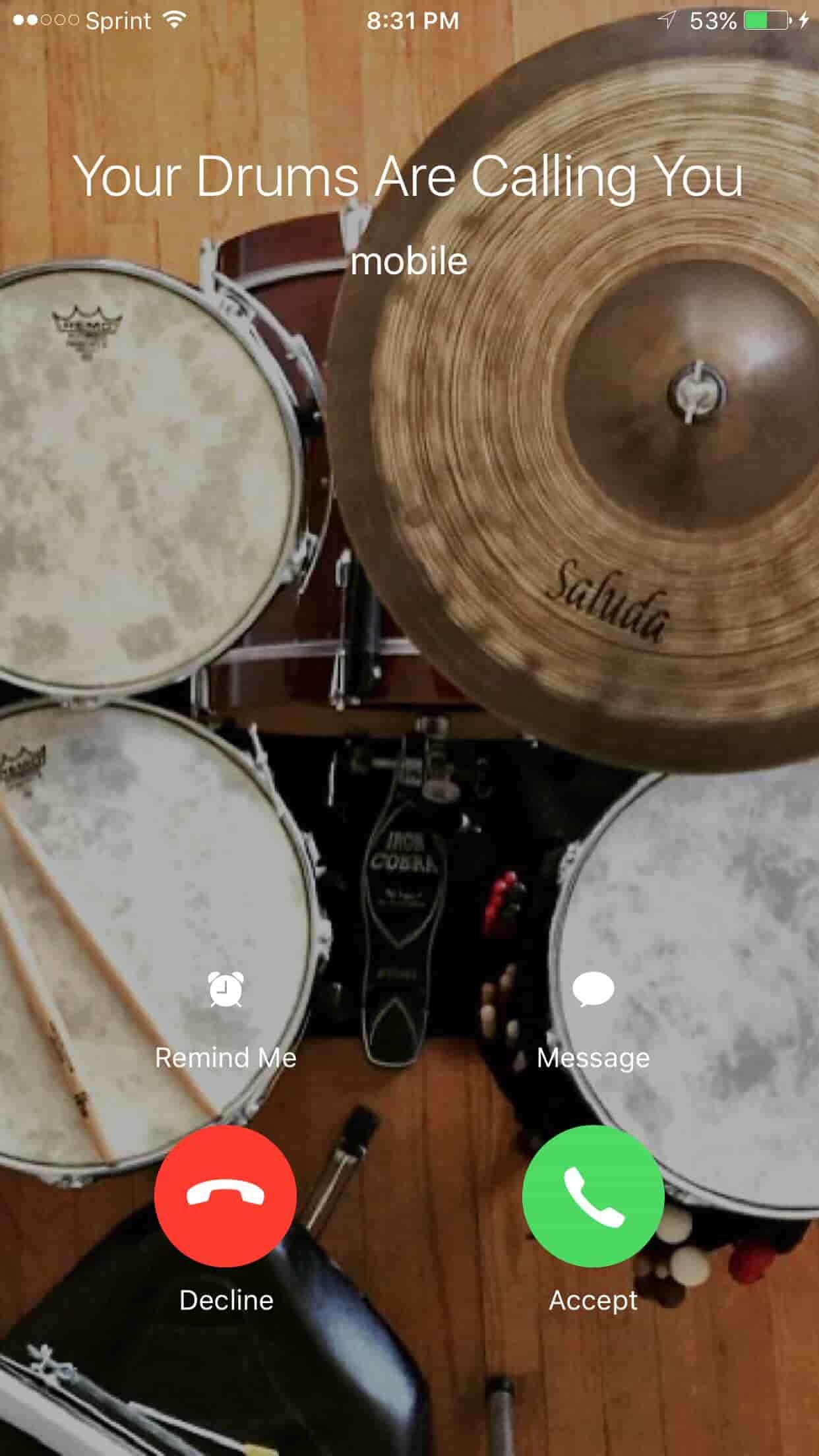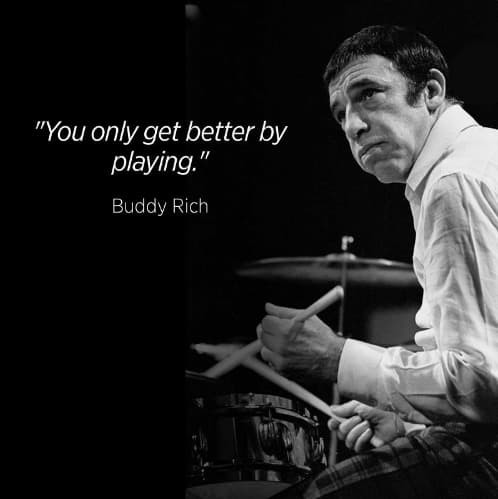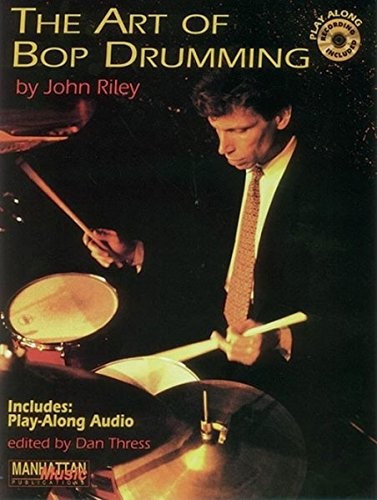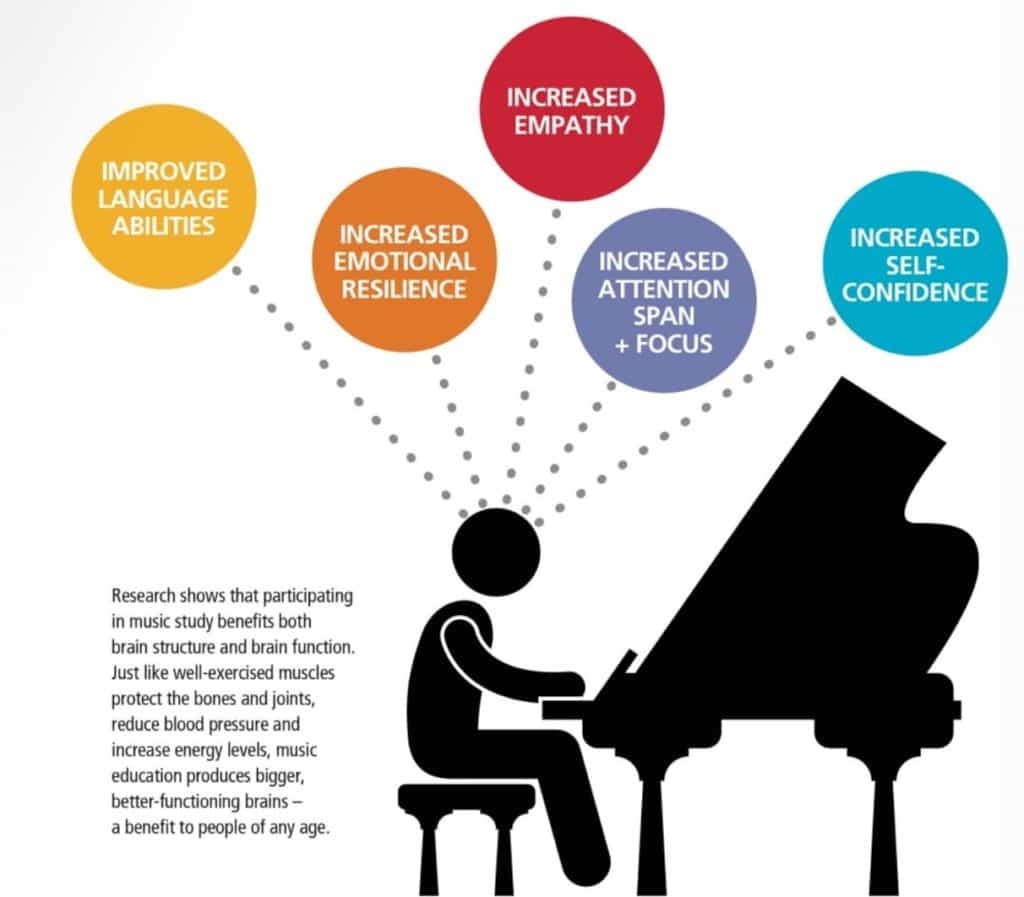Are The Drums Hard To Learn? Absolutely not! With the right approach and resources, anyone can learn to play the drums. At LEARNS.EDU.VN, we believe in making music accessible to everyone, offering structured lessons and guidance to help you master drumming basics and beyond. Whether you’re aiming to play simple beats or aspire to professional levels, the journey begins with understanding the fundamentals and consistent practice which will equip you with rhythm skills, musical instrument techniques and coordination.
1. Understanding the Learning Curve of Drums
The perception of difficulty in learning drums varies greatly depending on your goals and dedication.
1.1. Initial Stages: Accessibility for Beginners
Many people find that they can learn a basic drum beat quickly. Mastering your first song on the drums can take as little as 30 minutes. Getting started with fundamental rhythms is relatively straightforward, allowing beginners to quickly play along to simple songs. This initial success can be highly motivating.
1.2. Intermediate Level: Developing Proficiency
As you progress, developing a more detailed understanding of drumming requires time and practice. Typically, it takes around two years to gain a comprehensive grasp of drumming techniques, coordination, and musicality. This stage involves mastering various rhythms, fills, and learning to play in different musical styles.
1.3. Advanced Level: Pursuing Professionalism
Reaching a professional level in drumming requires significant dedication and years of consistent practice. Aspiring professional drummers typically spend 7 to 8 years honing their skills, mastering complex rhythms, developing their unique style, and gaining experience playing in diverse musical settings.
2. Debunking Myths About Drumming Talent
One of the most pervasive myths about learning drums is that you need to be born with a natural sense of rhythm. This simply isn’t true.
2.1. Rhythm as a Developed Skill
Rhythm is not an innate talent but a skill that develops with practice and exposure to music. Like any skill, some individuals may have a natural aptitude, but anyone can learn to keep time and develop a strong sense of rhythm through consistent effort.
2.2. The Importance of Passion and Practice
Passion and consistent practice are far more important than innate talent in determining success in drumming. Students who are passionate about drumming and dedicate time to regular practice consistently outperform those who rely solely on natural ability.
2.3. Overcoming the Talent Myth
It’s time to dispel the myth that only certain people can play drums. Anyone with the desire and willingness to put in the effort can learn to play and enjoy this amazing instrument. Embrace the journey and discover the joy of drumming for yourself.
Alt: Close-up of a drum set focusing on the hardware and drumheads, illustrating the intricate details and components involved in drumming.
3. Setting Realistic Goals
The perceived difficulty of learning drums greatly depends on your goals. Are you aiming to play casually for fun, join a local band, or pursue a professional career?
3.1. Playing Popular Music
If your goal is to play along to your favorite pop and rock songs, you can achieve this relatively quickly. Most pop and rock music relies on a limited number of common drum beats, making it accessible to beginners.
3.2. Joining a Band
Playing in a band requires more advanced skills, including keeping time, developing coordination, and understanding song structures. While it takes time to develop these skills, consistent practice and enthusiasm will lead to steady progress.
3.3. Pursuing Professionalism
Reaching a professional level requires a significant investment of time, effort, and resources. Professional drummers need to master a wide range of musical styles, possess exceptional technical skills, and develop a unique artistic voice.
4. Making Practice Enjoyable and Effective
Practice is essential for improving your drumming skills, but it doesn’t have to be a chore. Here’s how to make practice sessions enjoyable and effective.
4.1. Finding Joy in Practice
Practice should be an enjoyable part of your daily routine. Many musicians find practice to be a rewarding and fulfilling activity. Personally, after years of playing, practice remains my favorite part of the day.
4.2. Structuring Practice Sessions
Effective practice involves a variety of activities, including technique exercises, coordination drills, learning to read music, and mastering new drum grooves. Variety keeps practice engaging and prevents burnout.
4.3. Overcoming Initial Challenges
When learning something new, it’s normal to feel overwhelmed by the amount of information. This feeling is temporary. With consistent practice, your brain will learn the motions and patterns of drumming, making them unconscious and automatic.
4.4. Experiencing the Rewards of Practice
The reward of practice reveals itself when you can flow with the music effortlessly. Getting lost in the music is an unparalleled feeling. As you practice, your ability to appreciate, create, and enjoy music will increase.
Alt: A motivational quote from Buddy Rich emphasizing the importance of dedication and perseverance in drumming, inspiring learners to embrace the journey of improvement.
4.5. Balancing Weaknesses and Strengths
Famous jazz drummer John Riley suggests spending at least 50% of your practice time working on your weaknesses and the remainder playing what you love most. This approach ensures balanced development and maintains enthusiasm.
5. The Importance of Guidance and Instruction
While it’s possible to learn drums independently, some form of teaching is vital to becoming the best drummer you can be.
5.1. Benefits of a Drum Teacher
A drum teacher can provide insights from their years of experience that you may never discover on your own. Teachers offer personalized guidance, identify areas for improvement, and provide structured lessons tailored to your specific needs.
5.2. The Value of Ongoing Learning
Even experienced drummers benefit from ongoing learning. Continuing to take lessons and seek guidance from mentors can inspire new ideas and push your skills to the next level.
5.3. Online Resources
For beginners, online video courses can be a fun and accessible way to get started with drumming. These courses often cover fundamental techniques and allow you to play along to music from the beginning.
5.4. Learning Without Equipment
Many introductory lessons can be followed with just your hands and feet, making it possible to start learning without investing in a full drum kit. This approach allows you to develop basic coordination and rhythm skills before committing to purchasing equipment.
6. Achieving a Professional Level of Drumming
Reaching a professional level of drumming is a challenging but achievable goal. It requires dedication, perseverance, and a comprehensive approach to developing your skills.
6.1. Inspiring Role Models
Many aspiring drummers dream of playing like John Bonham or Dave Grohl. While their level of skill may seem unattainable, it’s important to remember that they started out just like you.
6.2. The Importance of Perseverance
Professional drummers achieved their success through years of practice, making mistakes, and overcoming frustrations. Their passion and dedication fueled their perseverance and ultimately led to their accomplishments.
6.3. Time Investment
While it may take many years to reach a professional level, it doesn’t necessarily take as long as you might think. With focused practice and the right guidance, you can make significant progress in a relatively short amount of time.
Alt: Cover of the book ‘The Art of Bop Drumming’, an essential resource for drummers looking to improve their jazz drumming techniques and understanding of bop rhythms.
6.4. Essential Skills for Professional Drummers
Professional drummers typically possess the following skills:
- Play a wide range of musical styles
- Keep excellent time
- Read music
- Jam and improvise at a high level
- Create original musical ideas and solos
- Produce a high-quality recording sound
6.5. Building on Foundational Skills
Much of the playing of professional drummers is based on the same foundations that beginner drummers are learning for the first time. By mastering these fundamental skills and continuously building upon them, you can progress towards a professional level.
6.6. Influences and Inspiration
Listening to and studying the playing of your favorite drummers can be a powerful source of inspiration and learning. Pay attention to their techniques, rhythms, and musical ideas, and incorporate them into your own playing.
7. Overcoming Personal Barriers
Many people worry that their personal circumstances may prevent them from learning drums. However, there are very few situations that should stop you from pursuing your musical goals.
7.1. Dispelling the Myth of Special Talent
We are often taught that only special, creative people should learn musical instruments. This belief can be discouraging, but it’s important to remember that anyone can learn to play drums with the right approach and mindset.
7.2. Addressing Age Concerns
Many adults worry that they are too old to learn drums. While children’s brains are more flexible, adult brains also have an incredible capacity for change. It’s entirely possible to develop new skills as an adult, including drumming.
7.3. Embracing the Beginner Mindset
One of the biggest challenges for adults learning drums is accepting that they are beginners. Letting go of expectations and embracing the learning process can accelerate progress and make the experience more enjoyable.
7.4. Learning from Children
Children often approach learning with a sense of openness and curiosity, without worrying about whether they are good or not. Adopting this mindset can help you enjoy the music and the practice, leading to faster progress.
7.5. Being Kind to Yourself
Be patient and kind to yourself as you learn drums. It’s normal to make mistakes and experience frustrations. Focus on celebrating your progress and enjoying the journey.
8. Essential Gear for Aspiring Drummers
Equipping yourself with the right gear is crucial for a successful drumming journey. Here’s a breakdown of essential equipment:
8.1. Drum Set Components and Their Functions
| Component | Function |
|---|---|
| Bass Drum | Provides the foundational beat with a deep, resonant tone |
| Snare Drum | Delivers a sharp, crisp sound and is central to many drum beats |
| Tom-Toms (Rack & Floor) | Offer melodic and rhythmic variations with different sizes and tones |
| Cymbals (Hi-Hat, Crash, Ride) | Add color and accents to the drumming, providing sustained shimmering sounds |
| Hardware (Stands, Pedals, Throne) | Ensures stability and adjustability of the drum set for ergonomic playing |




8.2. Choosing the Right Drumsticks
Drumsticks are an extension of your hands, and selecting the right pair is vital.
| Type | Material | Characteristics |
|---|---|---|
| 5A | Hickory | All-purpose, balanced for various styles |
| 5B | Hickory | Thicker, heavier for rock and powerful drumming |
| 7A | Maple | Lighter, faster response for jazz and lighter playing |
| Nylon Tip | Varies | Brighter sound, increased durability |
| Wood Tip | Varies | Warmer sound, traditional feel |
8.3. Drum Hardware Considerations
Hardware provides the necessary support and adjustability for your drum set.
| Item | Function |
|---|---|
| Drum Throne | Comfortable seating that supports posture and reduces fatigue |
| Cymbal Stands | Securely hold cymbals, adjustable for height and angle |
| Snare Stand | Holds the snare drum, providing stability and angle adjustment |
| Hi-Hat Stand | Controls the hi-hat cymbals, allowing foot-controlled rhythmic patterns |
| Bass Drum Pedal | Foot pedal mechanism that strikes the bass drum, controlling its sound |
9. Benefits of Learning Drums: Backed by Research
Learning to play the drums is not only a fun and rewarding experience, but it also offers a range of cognitive, emotional, and physical benefits.
9.1. Cognitive Enhancement
Playing the drums requires coordination, focus, and memory, which can enhance cognitive function.
| Cognitive Skill | How Drumming Helps |
|---|---|
| Coordination | Requires the use of both hands and feet simultaneously, improving motor skills |
| Focus | Demands concentration and attention to detail, enhancing attentional abilities |
| Memory | Involves memorizing rhythms, patterns, and song structures, boosting memory capacity |
| Problem-Solving | Encourages quick decision-making and adaptability in response to musical cues and changes |
Research from the Royal Conservatory of Music suggests that musical training enhances cognitive abilities, including memory, attention, and problem-solving skills. (Research source: Royal Conservatory of Music)
9.2. Emotional Well-Being
Drumming can be a powerful tool for emotional expression, stress relief, and boosting self-esteem.
| Emotional Benefit | How Drumming Helps |
|---|---|
| Stress Relief | Provides an outlet for releasing tension and frustration through physical expression |
| Emotional Expression | Allows for conveying emotions and feelings through rhythm and sound |
| Self-Esteem | Boosts confidence and a sense of accomplishment as skills develop and improve |
| Creativity | Fosters creative thinking and encourages experimentation with new sounds and rhythms |
9.3. Physical Health
Playing the drums can improve physical fitness, coordination, and motor skills.
| Physical Benefit | How Drumming Helps |
|---|---|
| Coordination | Enhances hand-eye coordination and the ability to synchronize movements |
| Motor Skills | Develops fine and gross motor skills through the use of hands, feet, and limbs |
| Cardiovascular Health | Increases heart rate and improves circulation, providing a moderate cardiovascular workout |
| Muscle Strength | Builds muscle strength and endurance in the arms, legs, and core |
Alt: Visual representation of the various benefits of learning drums, including cognitive, emotional, and physical improvements, encouraging people to pursue drumming.
10. Latest Trends in Drumming Education
The world of drumming education is constantly evolving, with new methods and technologies emerging to enhance the learning experience.
10.1. Online Drum Lessons: Accessibility and Convenience
Online drum lessons have become increasingly popular, offering accessibility and convenience for learners of all levels. Platforms like LEARNS.EDU.VN provide structured lessons, personalized feedback, and a supportive community of drummers.
10.2. Drumming Apps and Software: Interactive Learning
Drumming apps and software offer interactive learning experiences, allowing learners to practice with virtual drum kits, record and analyze their playing, and receive real-time feedback.
10.3. Hybrid Learning Models: Combining Online and In-Person Instruction
Hybrid learning models combine the benefits of online and in-person instruction, providing learners with the flexibility of online learning and the personalized guidance of a drum teacher.
10.4. Drumming Workshops and Camps: Immersive Experiences
Drumming workshops and camps offer immersive learning experiences, allowing learners to study with renowned drummers, collaborate with other musicians, and perform in live settings.
10.5. Drumming for Therapy and Wellness: Holistic Benefits
Drumming is increasingly recognized as a therapeutic tool for promoting emotional well-being, reducing stress, and improving cognitive function. Drum circles and drumming therapy programs are becoming more common in healthcare and wellness settings.
11. FAQs: Addressing Common Concerns About Learning Drums
Here are some frequently asked questions about learning drums, addressing common concerns and providing helpful insights.
-
Is it too late to learn drums as an adult?
No, it’s never too late to learn drums. Adults can develop new skills and achieve their musical goals with dedication and practice.
-
Do I need to be musically talented to play drums?
No, musical talent is not a prerequisite for learning drums. Passion, practice, and a willingness to learn are more important than innate ability.
-
How much practice is needed to become a good drummer?
The amount of practice needed varies depending on your goals. Consistent practice, even for short periods, is more effective than sporadic, lengthy sessions.
-
What are the best resources for learning drums online?
LEARNS.EDU.VN offers a variety of online drum lessons, resources, and guidance to help you learn drums effectively.
-
How do I choose the right drum teacher?
Look for a teacher who is experienced, patient, and able to tailor lessons to your specific needs and goals.
-
What equipment do I need to get started with drumming?
A drum set, drumsticks, and a practice pad are the basic equipment needed to start drumming.
-
How can I make practice more fun and engaging?
Set realistic goals, practice with music you enjoy, and find a practice partner to stay motivated.
-
How long does it take to learn a specific drumming skill?
The time it takes to learn a specific drumming skill depends on the complexity of the skill and the amount of practice you dedicate to it.
-
What are the benefits of joining a band or drumming group?
Joining a band or drumming group provides opportunities to collaborate with other musicians, perform in live settings, and receive feedback from peers.
-
How can I overcome stage fright when performing drums?
Prepare thoroughly, practice in front of others, and focus on enjoying the music to overcome stage fright.
12. Call to Action: Unlock Your Drumming Potential with LEARNS.EDU.VN
Ready to embark on your drumming journey? Visit LEARNS.EDU.VN today to explore our comprehensive drum lessons, resources, and expert guidance. Whether you’re a beginner or an experienced drummer looking to enhance your skills, we have everything you need to unlock your full potential.
At LEARNS.EDU.VN, we’re committed to providing high-quality education and a supportive learning environment for drummers of all levels. Our experienced instructors, structured curriculum, and interactive resources will help you master the fundamentals, develop your unique style, and achieve your musical goals.
Don’t wait any longer to start playing the drums. Visit LEARNS.EDU.VN now and take the first step towards becoming the drummer you’ve always dreamed of.
Contact us:
- Address: 123 Education Way, Learnville, CA 90210, United States
- WhatsApp: +1 555-555-1212
- Website: learns.edu.vn
